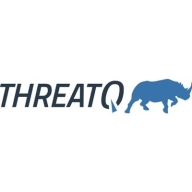

ThreatQ and Microsoft Sentinel are key players in the cybersecurity threat intelligence and SIEM platform categories. While ThreatQ offers customization and attractive pricing, Microsoft Sentinel is favored for its robust feature set and integration capabilities.
Features: ThreatQ focuses on adaptive threat intelligence platform capabilities, allowing robust sharing and customization of threat data. Microsoft Sentinel is recognized for advanced analytics, seamless integration with Microsoft services, and automated response capabilities.
Ease of Deployment and Customer Service: ThreatQ's deployment is simplified by its flexible architecture and noted for excellent customer support. Microsoft Sentinel benefits from fast deployment within Azure infrastructure but can be complex for integration outside the Microsoft ecosystem, though it's supported by rapid issue resolution through Azure's services.
Pricing and ROI: ThreatQ is known for lower upfront setup costs and a modular approach, making it appealing for smaller or specialized needs. Microsoft Sentinel's costs reflect its comprehensive capabilities, offering higher long-term ROI for organizations already integrated into Azure services, making it suitable for larger enterprise operations.

Microsoft Sentinel is a scalable, cloud-native, security information event management (SIEM) and security orchestration automated response (SOAR) solution that lets you see and stop threats before they cause harm. Microsoft Sentinel delivers intelligent security analytics and threat intelligence across the enterprise, providing a single solution for alert detection, threat visibility, proactive hunting, and threat response. Eliminate security infrastructure setup and maintenance, and elastically scale to meet your security needs—while reducing IT costs. With Microsoft Sentinel, you can:
- Collect data at cloud scale—across all users, devices, applications, and infrastructure, both on-premises and in multiple clouds
- Detect previously uncovered threats and minimize false positives using analytics and unparalleled threat intelligence from Microsoft
- Investigate threats with AI and hunt suspicious activities at scale, tapping into decades of cybersecurity work at Microsoft
- Respond to incidents rapidly with built-in orchestration and automation of common tasks
To learn more about our solution, ask questions, and share feedback, join our Microsoft Security, Compliance and Identity Community.
ThreatQ is a versatile threat intelligence platform designed for effective aggregation, analysis, and management of threat data. It streamlines threat information from multiple sources to enhance understanding and response capabilities.
ThreatQ supports incident response by correlating indicators of compromise and centralizing threat data in a single repository. This platform improves decision-making with its comprehensive threat landscape view and collaborative features. Its detailed analytics, customizable workflows, and scalability offer robust support for security teams. ThreatQ's integration with existing tools and powerful automation capabilities streamline threat detection and response processes. While some users point out the need for better integration and data visualization, ThreatQ remains a preferred choice for many due to its threat prioritization and reporting features.
What are the key features of ThreatQ?ThreatQ is implemented across various industries, providing valuable threat intelligence management in sectors like finance, healthcare, and government. These industries benefit from its incident response support, detailed analytics, and ability to centralize and prioritize significant threats, improving overall security posture.
We monitor all Security Orchestration Automation and Response (SOAR) reviews to prevent fraudulent reviews and keep review quality high. We do not post reviews by company employees or direct competitors. We validate each review for authenticity via cross-reference with LinkedIn, and personal follow-up with the reviewer when necessary.